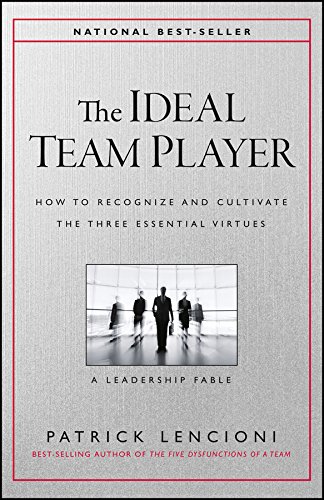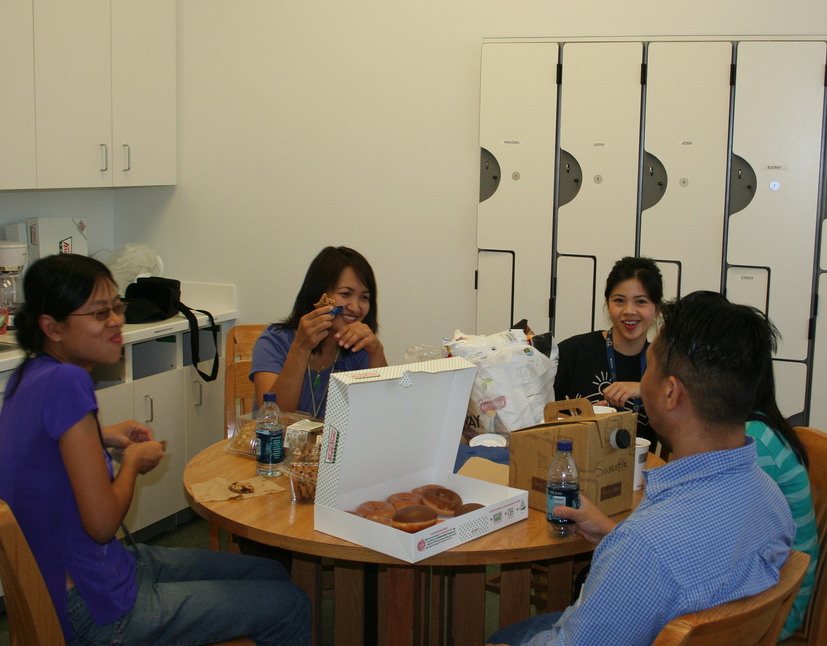
Three Ways to Be a Better Team Member
It may seem unlikely that there could be anything new to learn about what makes teams effective, but there is. More than ever before, work today gets done in teams, and your ability to contribute as a member is vital to your career success.
Every team is a unique social unit. The quality of members’ social interactions – both intra-team and inter-team – determines project success or failure. Each member contributes to group outcomes – and some more so than others.
But until recently, there hasn’t been much specific advice on how to improve your value as a team member. You’ve probably been advised to “display empathy,” “respect diversity,” and communicate and share openly. As a team member, you’re directed to work for common goals rather than focusing on personal success.
Sometimes team members are evaluated on factors like leadership, technical skills, vision, communication, and motivation. But although these matter, they’re not nearly as important as social skills.
Deep Human Interactions
Research using ever more sophisticated measurement and observation technology has now determined that the number one factor in making a group effective is skill at deep human interactions.
Effective team members demonstrate consistent social skills, like noticing the subtlest elements of social cues: a furrowed brow, a smile, a desire to speak up.
Researchers have studied groups for years. They’ve learned that intelligence doesn’t explain a group’s effectiveness, nor does group cohesion, motivation, or satisfaction. Stability of the team and its size matters only a little.
Furthermore, following lofty ideals doesn’t bring about a significant impact on team effectiveness, although these are certainly beneficial:
- Having a clear, challenging, meaningful vision
- Specifying well-defined roles and responsibilities
- Giving members appropriate rewards, recognition, and resources
Such concepts are fine but don’t determine the success of teams. There is only one ability that stands out in people who are great team members: they all have great social sensitivity.
Social Sensitivity – Being a “Smart” Team Member
Social sensitivity is the ability to perceive people’s thoughts and feelings based on looking at their faces and other nonverbal cues. Social sensitivity shows up when team members read body language, take turns talking and listen well. Not surprisingly, many women perform better than men in measures of social sensitivity.
Patrick Lencioni discusses the importance of being socially “smart” in his book The Ideal Team Player: How to Recognize and Cultivate The Three Essential Virtues noting that “In the context of a team, smart simply refers to a person’s common sense about people.” He goes on to say:
Smart people just have good judgment and intuition around the subtleties of group dynamics and the impact of their words and actions. As a result, they don’t say and do things – or fail to say and do things – without knowing the likely responses of their colleagues.
Using a Sociometer Device
How do we know that social sensitivity outweighs all other factors in team effectiveness? Professor Alex Pentland’s Human Dynamic Lab at MIT invented a sociometric badge, worn on people’s clothing. It has the technology to measure the tone of voice a person uses, whether people are facing one another while talking, how much they gesture, how much they talk, listen, and interrupt one another.
A sociometer doesn’t record the words people say, as they are determined irrelevant in measures of interactions. Here are some of their findings:
- Successful team members generate a large number of ideas in short contributions to conversations. No one goes on for great length.
- They engage in “dense interactions;” that is, they alternate between advancing their own ideas and responding to the contributions of others with “good,” “right,” “what?” and other short comments that signal consensus on an idea’s value, good or bad.
- Successful members contribute ideas and reactions, taking turns more or less equally, ensuring a wide diversity of ideas.
Those three elements of interaction were more important than any other factor in explaining excellent performance of the best teams. In fact, they were about as important as all the other factors – individual intelligence, technical skills, members’ personalities and anything else – combined.
Team-Based Social Interactions
Human interaction in teams is so powerful that increasing it just a little improves group performance a lot. Here’s a case study example, reported in Geoff Golvin’s book, Humans Are Underrated: What High Achievers Know That Brilliant Machines Never Will (Portfolio, 2015):
Humans Are Underrated: What High Achievers Know That Brilliant Machines Never Will (Portfolio, 2015):
In a Bank of America call center of 3,000 employees, productivity vastly improved simply by changing the schedule of break times so that workers spent more time together socially. When the bank switched to aligned team breaks, productivity rose and turnover fell. Performance improved as workers had more time to interact with each other. The bank estimated a savings of $15 million a year.
Three Ways to Be a Better Team Member
How can you use this information to become a better team member and increase your value in your organization? Everyone can improve their social sensitivity. When working with your team, try these three approaches:
- Suggest a large number of ideas in short contributions to conversations.
- Engage in “dense interactions”: switch between advancing your own ideas and responding to others’ with “good,” “right,” and other short comments.
- Take conversational turns more or less equally, to make sure everyone contributes a wide diversity of ideas.
What’s required to ensure improved teamwork is that you observe and shift awareness of your social skills. You can practice doing this with a trusted peer, a mentor, or a professional coach.
Yet be aware that these three elements are not superficial communication techniques that can be applied without examining your mindset and attitudes. For that, you’ll make the most improvements working with a coach.
Growth Summit
Patrick Lencioni, mentioned above, will be speaking at the Growth Summit in October. The Growth Summit features several other business thought leaders in addition to Patrick Lencioni. To learn more about the Growth Summit, click HERE.
If you are interested in attending the Growth Summit, contact Jerry (262-523-1900) to register at a discounted rate.
